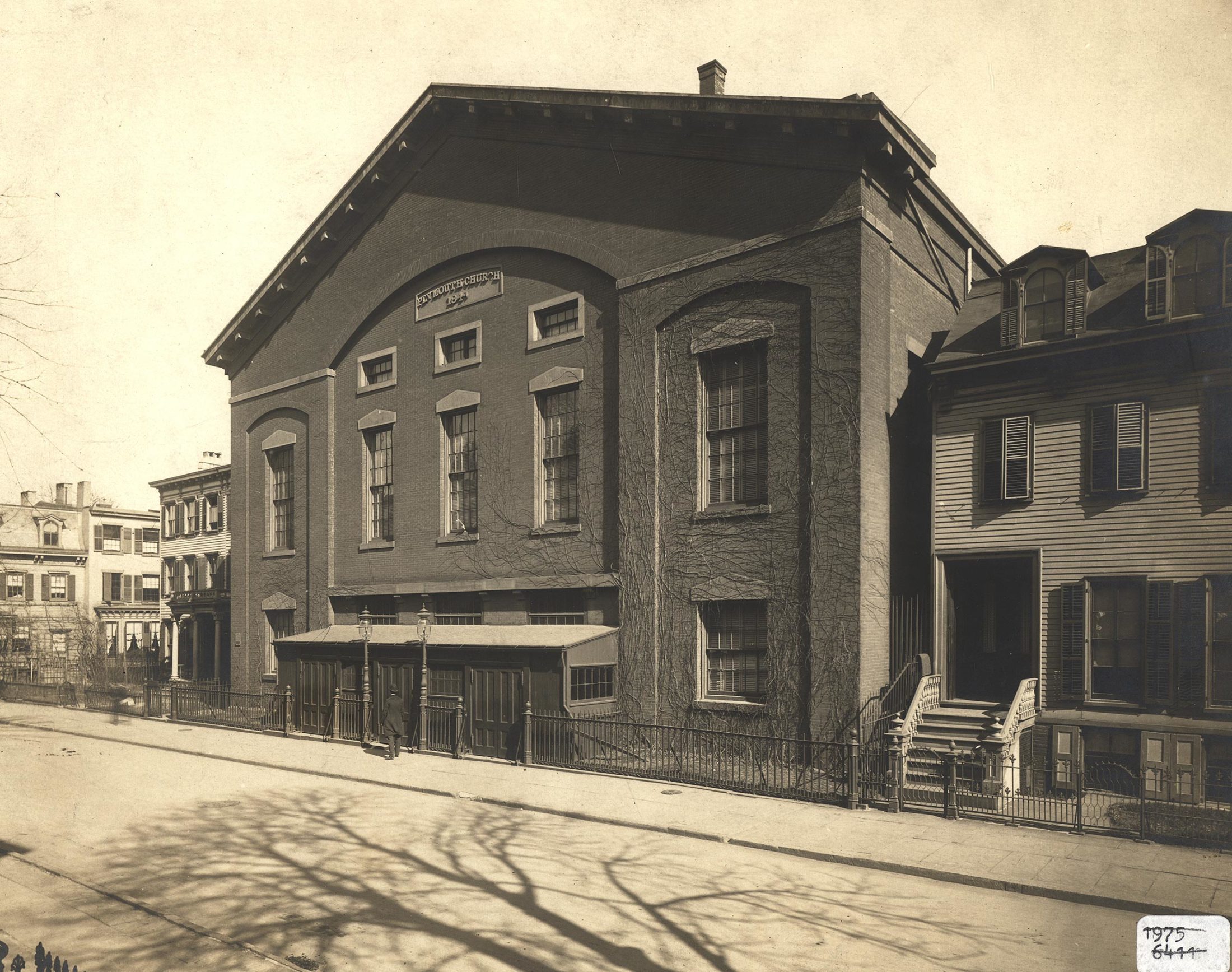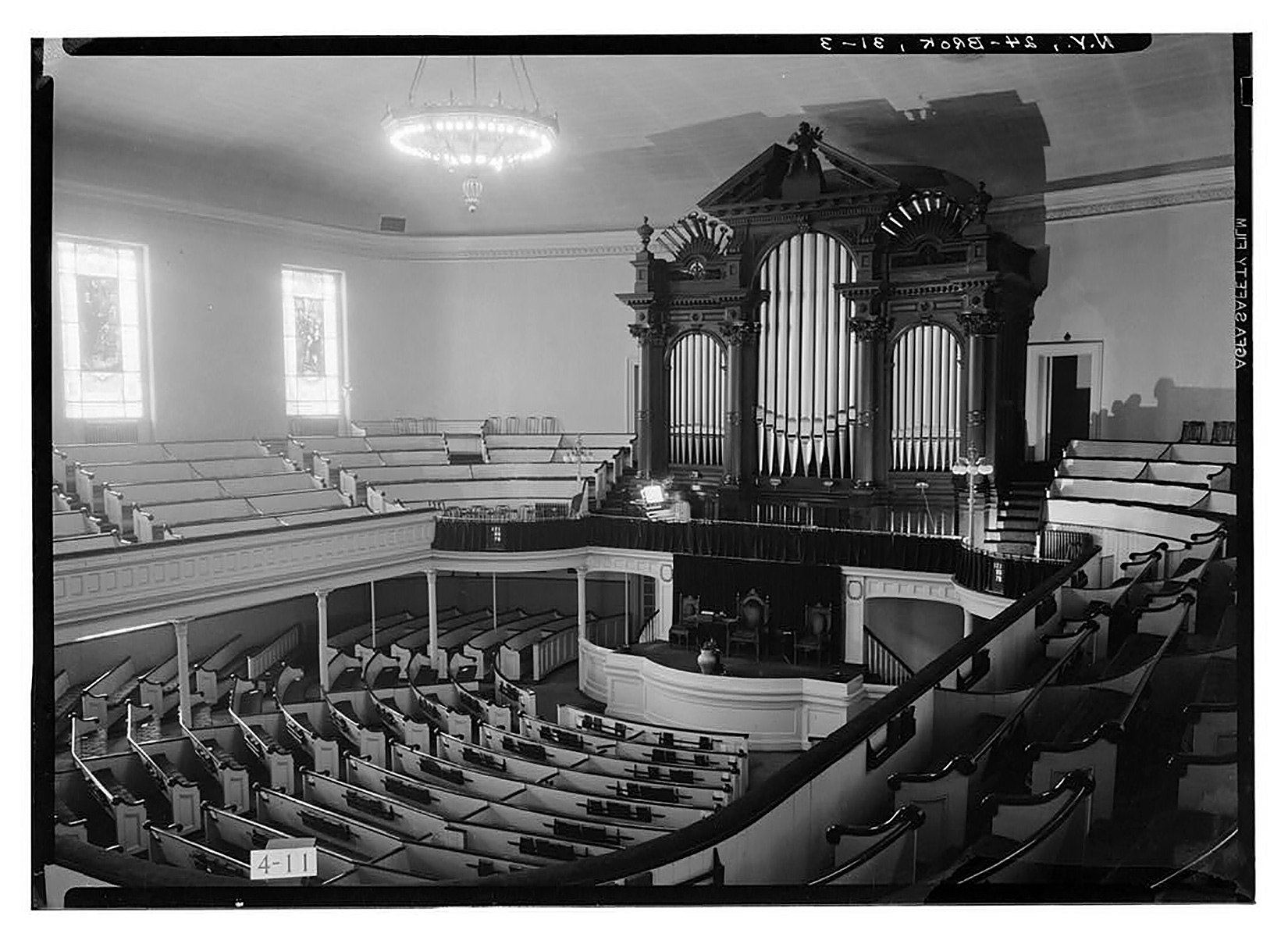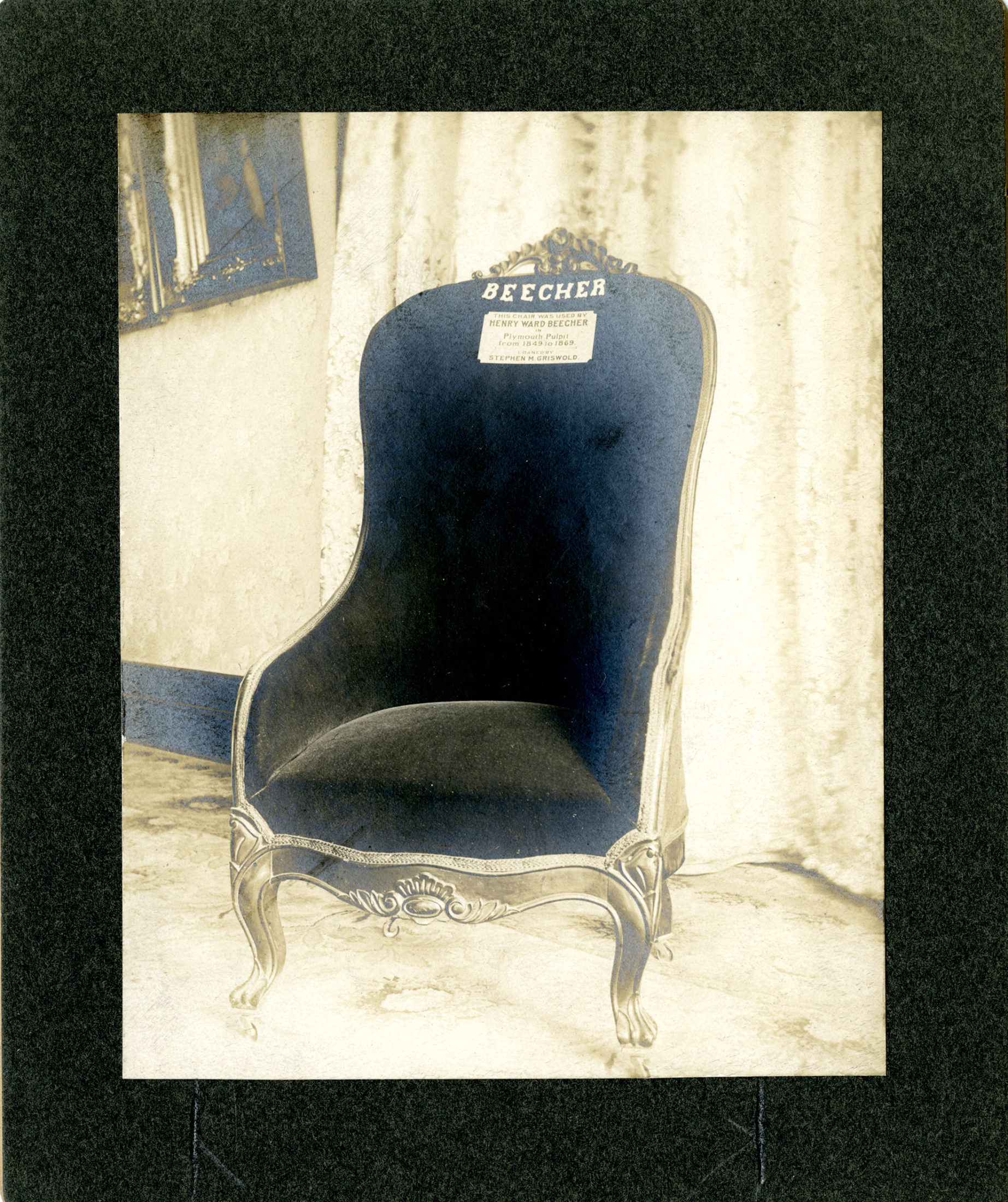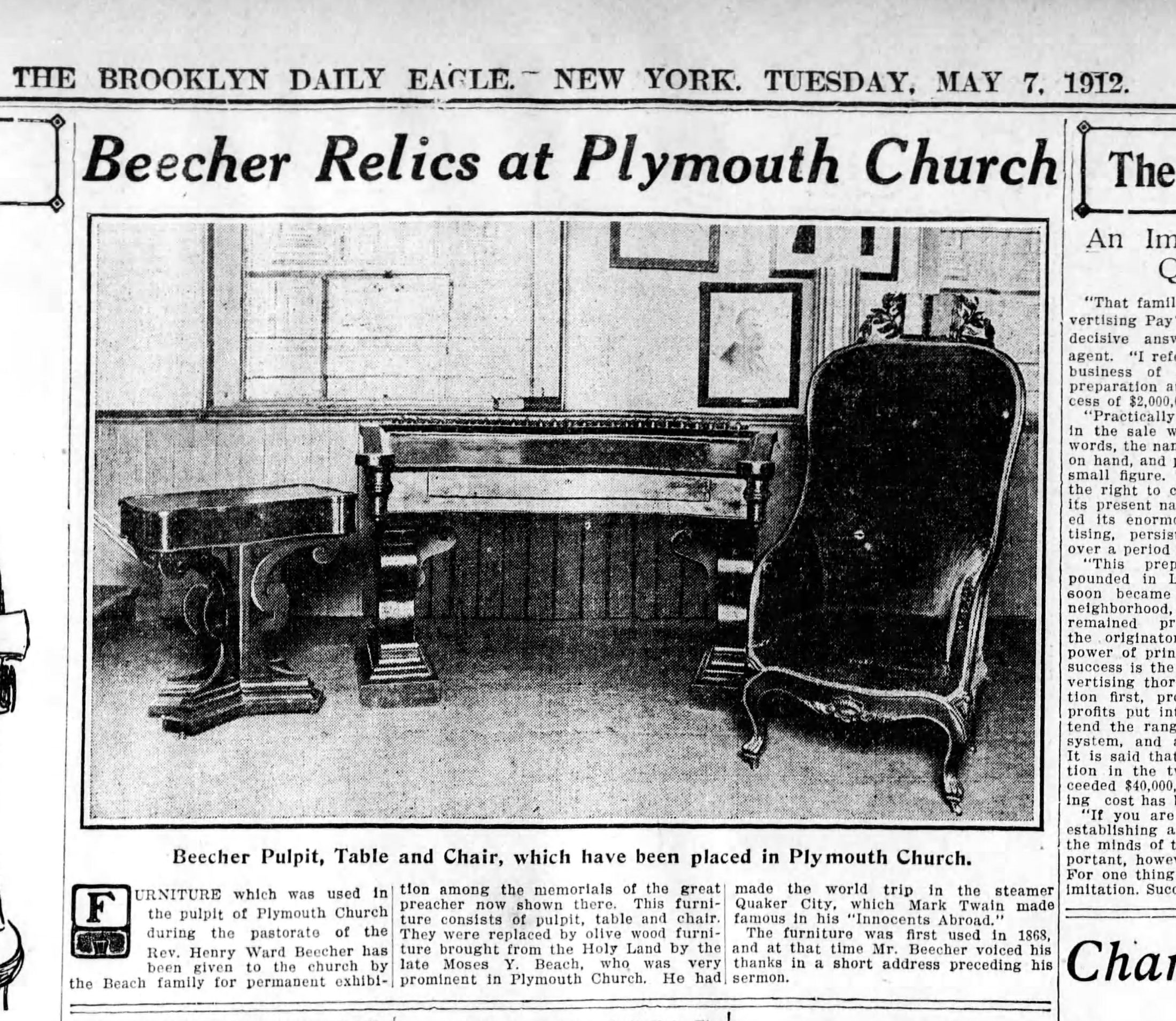“The Most Famous Man in America”
Postmortem Souvenirs and Salvaged Church Furniture
Why are certain artifacts preserved? Some are kept because they are considered works of art; others because of their connection to significant historical figures or events. For this mid-1800s Rococo Revival side chair, its “Beecher” embroidery proudly announces its claim to fame and the reason for its preservation.

Plymouth Church, Brooklyn Heights, 1890–1900
Early Brooklyn and Long Island photograph collection (V1972.1.1040)
Brooklyn Historical Society
Henry Ward Beecher was hand-selected as the minister of Brooklyn’s new Plymouth Church in 1847 by a group of prominent Brooklynites who were attracted to his passionate sermons and progressive stance on issues like slavery. In early 1849, a fire destroyed the original church on Orange Street in Brooklyn Heights. The church that stands today is the second Plymouth Church, equipped with the stage-like platform upon which Beecher moved freely when speaking. The platform did not have a traditional pulpit, preferring this platform with just a desk and a set of chairs, including the one now in the BHS collection.

Plymouth Church Interior (looking North), 1934
Historic American Buildings Survey
HABS NY, 24-BROK, 31–3
Library of Congress
This pulpit furniture “bore witness” to Beecher’s rise to national fame. From his pulpit platform Beecher condemned slavery and supported the Union cause throughout the Civil War. Plymouth Church retired its original pulpit furniture in 1868 and replaced it with new furnishings carved from the wood of an olive tree brought back from Jerusalem by a parishioner. The old furniture moved to storage and was, for a time, forgotten.

[Old Beecher Pulpit Chair], circa 1903
Plymouth Church of the Pilgrims and Henry Ward Beecher collection (ARC .212)
Brooklyn Historical Society
Beecher’s death in the spring of 1887 was national news, his Brooklyn funeral reportedly attended by 50,000 mourners. In subsequent decades, members of the Plymouth Church congregation guarded Beecher’s reputation and memory. At one point, they were determined to build a “fireproof vault” in the church basement to serve as a museum to Beecher. In 1898, when the old pulpit chairs resurfaced in storage, the Brooklyn Daily Eagle reported that “numerous offers on the part of old members of the church to receive them as souvenirs were filed.”

“Beecher Relics at Plymouth Church”
Brooklyn Daily Eagle, May 7, 1912
Brooklyn Public Library
Preserved as a Beecher relic, this chair stands apart from commemorative Beecher souvenirs that flooded the market following his funeral because of its known connection to the preacher during his lifetime.